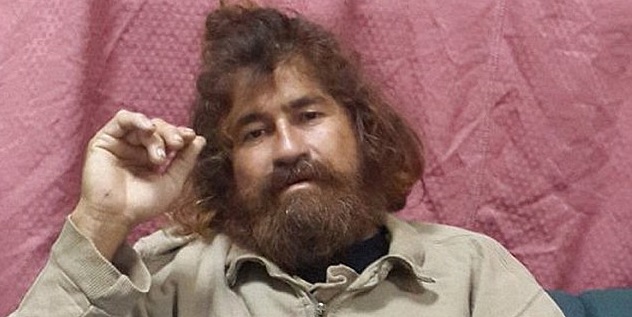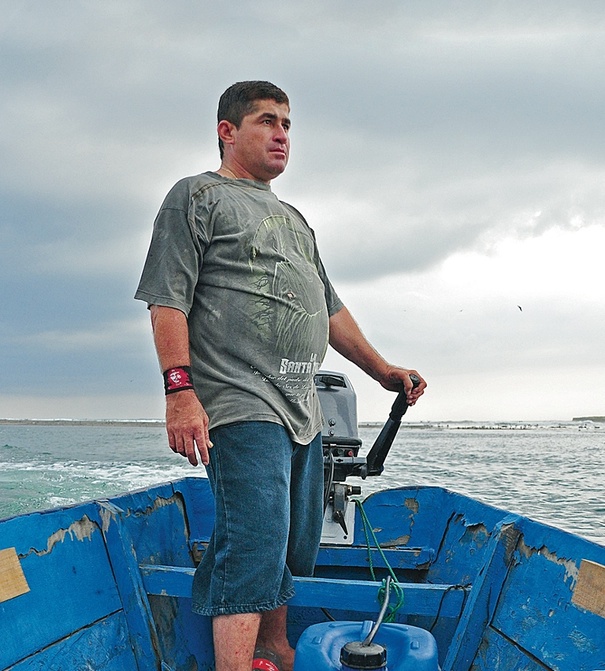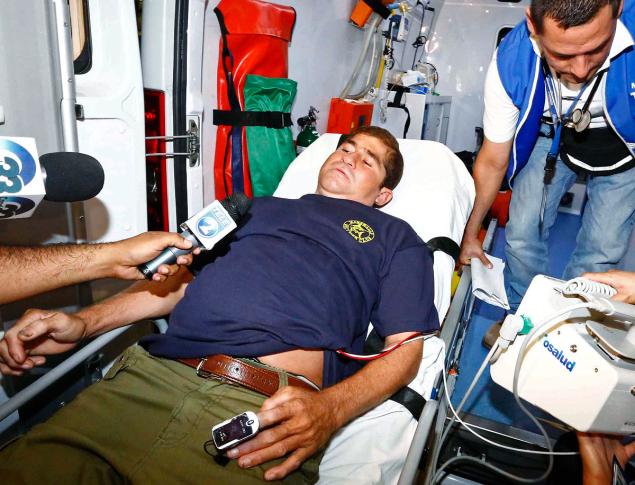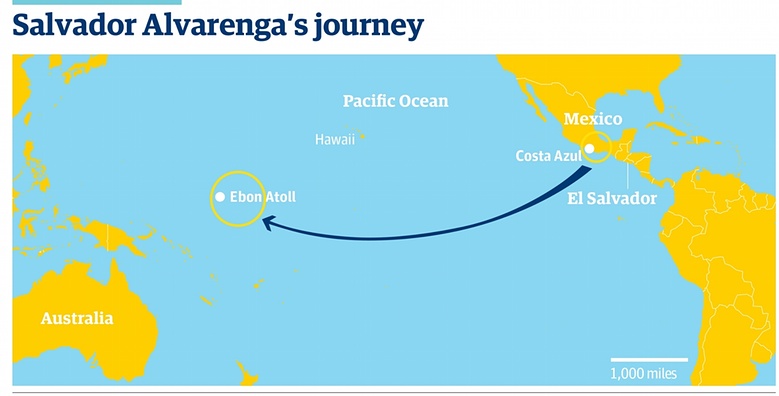
Ignoring bad weather warnings, on 18 November 2012, Salvador Alvarenga, a 36-year-old fisherman from El Salvador, went fishing in a small boat off the coast of Mexico with Ezequiel Cordoba, his 22-year-old novice crewmate. On January 29, 2014, he finally hit land, in the Marshall Islands north-east of Australia, almost 6700 miles from home –Alvarenga had survived more than a year adrift in the ocean.
Jonathan Franklin, an American journalist, tells the fisherman’s extraordinary story in a new book 438 Days.
According to Jonathan, Alvarenga and Cordoba had caught a lucrative haul of shark, mahi-mahi and tuna — 1,200 pounds in all — when a ferocious storm closed in on them. Cordoba froze with panic as Alvarenga battled through the night to bring the vessel home through 10-foot waves; they were only 15 miles from the coast, but then the engine failed. By noon, the radio had died and Alvarenga had to wrest Cordoba from the sea by his hair when he was swept overboard by a wave that also took their food and water supply. When the storm was at its height, they were forced to throw away their haul to lighten the strain on the 25-feet boat.
By the end of the 16-day storm, they were almost 300 miles offshore, well beyond the limited search-and-rescue capabilities of the Mexican Coast Guard. Aside from a fishing knife, they were left with no tools, no food and no water.
Without bait or fish hooks, Alvarenga invented a daring strategy to catch fish. He kneeled alongside the edge of the boat, his eyes scanning for sharks, and shoved his arms into the water up to his shoulders. When a fish swam between his hands, he smashed them shut, digging his fingernails into the rough scales. With the fishing knife, Cordoba sliced the flesh into finger-sized strips that were left to dry in the sun. They ate fish after fish.
In desperation, Alvarenga scooped up jellyfish and swallowed them whole; he caught turtles and drank their blood. He made do with eating his fingernails and even sections of his beard, which he marinated in seawater. He and Cordoba routinely drank their own urine. To stop being cooked by the sun, they sheltered in the ice-box designed to store the fishing haul.
Cordoba, however, grew depressed, refused to eat and died after around four months. Six days after Cordoba’s death, Alvarenga sat with the corpse on a moonless night, in full conversation, when he was suddenly shocked to find he was conversing with the dead. “First I washed his feet. His clothes were useful, so I stripped off a pair of shorts and a sweatshirt. I put that on – it was red, with little skull-and-crossbones – and then I dumped him in. And as I slid him into the water, I fainted,” he told Jonathan.
To keep himself sane, and banish thoughts of suicide, he invented an alternative reality so vivid that he later claimed to have enjoyed, while alone at sea, the greatest meals of his life ‘and the most delicious sex’. With this lively entourage of family, friends and lovers, Alvarenga insulated himself from bleak reality. “I would stroll back and forth on the boat and imagine that I was wandering the world. By doing this I could make myself believe that I was actually doing something. Not just sitting there, thinking about dying.”
Eventually, on the 438th day, he was washed ashore on the Ebon Atoll, southernmost of the 1,156 atolls and outcrops that make up the Marshall Islands. A native couple, Emi and Russel, welcomed him into their home. After a morning of caring for and feeding the castaway, Russel sailed across a lagoon to the main town and port on the island of Ebon to ask the mayor for help. Within hours a group, including police and a nurse, had come to rescue Alvarenga.
He was diagnosed with anemia and doctors suspected his diet of raw turtles and raw birds had infected his liver with parasites. Deeply traumatized, Alvarenga returned to El Salvador and his daughter. As soon as he was strong enough, he travelled to Mexico to deliver a message to Cordoba’s mother, Ana Rosa.
For 438 days, he lived on the edge of sanity. “I suffered hunger, thirst and an extreme loneliness, and didn’t take my life. You only get one chance to live – so appreciate it.”
Click here to buy a copy of the book.
This Article (Incredible Story Of A Man Who Survived 438 Days Lost At Sea) is free and open source. You have permission to republish this article under a Creative Commons license with attribution to the author and AnonHQ.com.









Damn. This is one tough guy.
Incredible story! Now please tell me how you spend more than a year on a boat with almost no food and still turn out to be overweight?
Exactly my thoughts. There is something about this story that isn’t being told… Or it’s all made up. Either way.
He’s not fat. He has parasites from all that raw food.
Parasites
Massive fluid uptake to the body. He was consuming mass amounts of liquids and food upon his arrival on land. He was not overweight by a long shot. Body chemistry was completely shot.
Read the book and follow up with own research. And maybe lose the conjecture habit you’ve formed your whole life. Douche